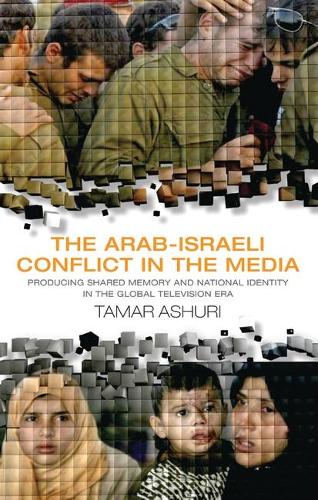
The Arab-Israeli Conflict in the Media: Producing Shared Memory and National Identity in the Global Television Era
(Hardback)
Publishing Details
The Arab-Israeli Conflict in the Media: Producing Shared Memory and National Identity in the Global Television Era
By (Author) Tamar Ashuri
Bloomsbury Publishing PLC
I.B. Tauris
30th October 2010
United Kingdom
Classifications
Tertiary Education
Non Fiction
Media studies
791.456581
Physical Properties
Hardback
240
Width 138mm, Height 216mm
Description
The television industry has metamorphosised from a national and largely-monopolized sector to a commercial and global enterprise. This has profoundly altered the way 'historical truth' and shared memory are constructed and conveyed. Here Ashuri provides a groundbreaking study of the changes through the vantage point of an illuminating mode of television production, international co-productions. By taking an example based on current events in the Middle East - a television documentary on the Arab Israeli conflict co-produced by three television networks (BBC, PBS, MBC) - her study enriches contemporary media research, providing an unprecedented, behind-the-scenes look at the entire production process of a co-produced television history.She shows that making the documentary on the Arab-Israeli struggle turned into a war: a war over competing memories, interpretation, editing, and finally narration. Ashuri's analysis of transnational documentary collaborations reveals inherent tensions between economic constraints and cultural forces, between the local and global, and between 'shared' and 'cosmopolitan' memory. Enriching political economy studies of media by exploring the cultural negotiations at the heart of television production process, and highlighting the economic processes that underlie the contested constructions of national histories, "The Arab-Israeli Conflict in the Media" will be essential reading for those interested in media and television studies, as well as globalization and cultural identity.
Reviews
'By taking a particularly clear and controversial example, this book will make a major contribution to media research: first by enriching political economy studies of media through exploring the cultural negotiations at the heart of the production process; second, by grounding theoretical debates on media's relation to memory in a detailed study of the economic processes that lie behind the contested representations of nation and history in circulation. This is one of the most exciting pieces of research I have come across for some years.' - Nick Couldry, Professor of Media and Communications, Goldsmiths College, University of London
Author Bio
Tamar Ashuri is a lecturer at Ben-Gurion University's Department of Communication Studies and in the School of Communications at Sapir Academic College, Ashkelon. She received her PhD from the Research Programme in Media and Communications at the London School of Economics and Political Science. Her recent publications have appeared, inter alia, in 'Media, Culture & Society' and 'Nation and Nationalism', and her new book on the history of media technologies will be published in 2008.
